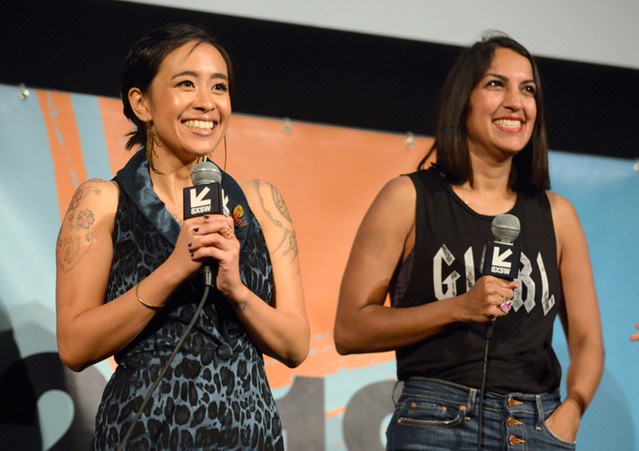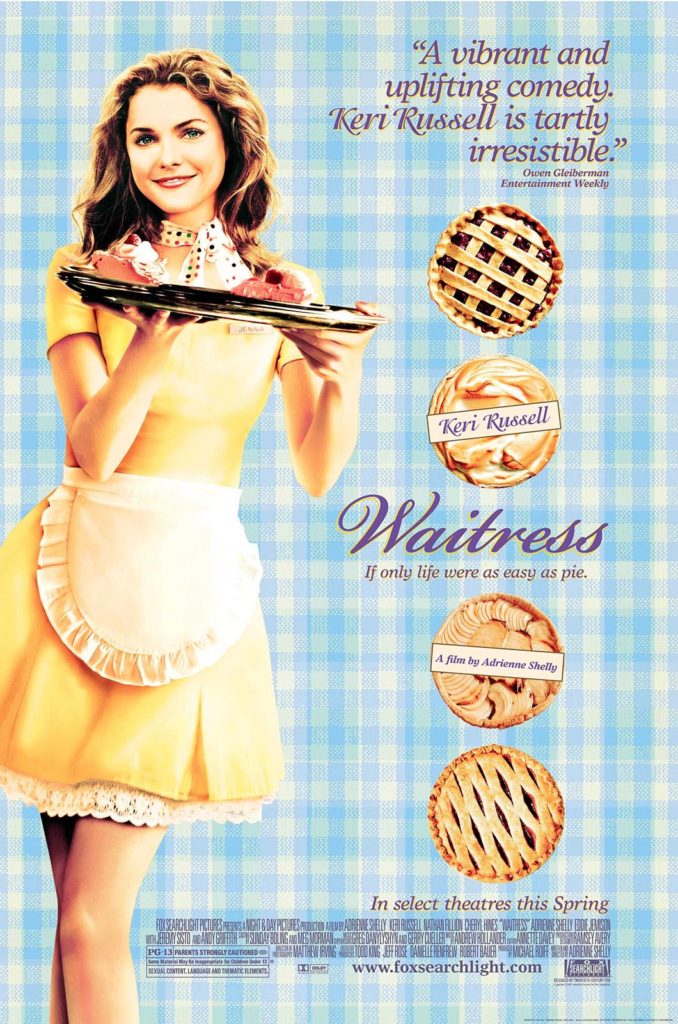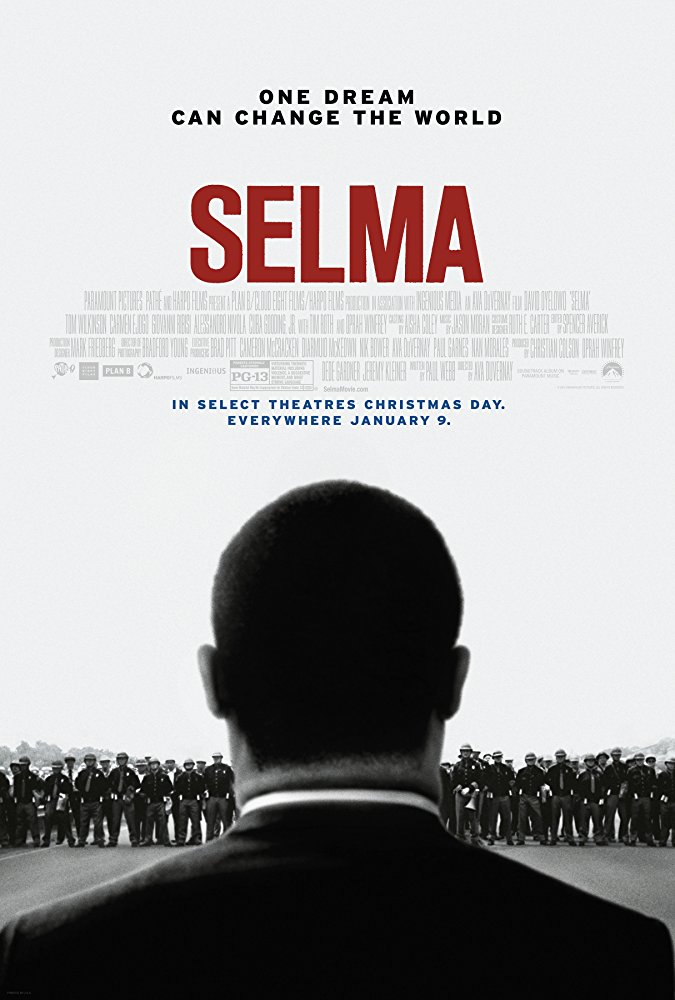The feature dramedy UNLOVABLE came to fruition – as all films do – via collaboration. Derived from the real life of writer/actor CHARLENE DeGUZMAN, Unlovable boasts a screenplay by deGuzman, Sarah Adina Smith, and Mark Duplass (who also executive produced with brother Jay). Though it’s deGuzman’s feature debut as a screenwriter and actress, her online videos and Twitter presence have gained her a fanbase, with her short I Forgot My Phone racking up over 51 million views on YouTube. Taking on directing duties for Unlovable was SUZI YOONESSI, who made the award-winning 2009 indie Dear Lemon Lima and recently helmed the film Daphne & Velma for Warner Bros. Orion Classics will release Unlovable in select theaters on November 1, followed by a VOD release November 2.
Based on her own history of love and sex addiction, deGuzman stars in the film as Joy, a young woman trying to get her life back on track after a suicide attempt. Through a 12-step program, Joy gains a sponsor in Maddie (Melissa Leo) and eventually forms an unlikely friendship with Maddie’s antisocial musician brother Jim (John Hawkes). Unlovable premiered at SXSW 2018, where it scored a Special Jury Recognition for the LUNA Gamechanger Award.
We did interviews with both writer/star Charlene deGuzman and director Suzi Yoonessi (who was actually seven-months pregnant during production!), which we combined below into one Unlovable super-Q&A.
——
COLIN McCORMACK: Charlene, the origin story for this project has sort of become famous in that you DM’d Mark Duplass on Twitter to get him to read one of your scripts, is that right?
CHARLENE DeGUZMAN: Actually, he started following me on Twitter at the end of 2013 and so I just sent him a DM that said, Oh my God, you’re one of my heroes. Thank you for following me. And he DM’d back, If you have anything you’ve ever written that you want to show me, send it over. And at the time I didn’t have anything. So it wasn’t until a whole year later – because I had started recovery for sex and love addiction, something that helped me in my recovery was writing – and I had written this TV pilot based on my experiences. So I sent it to him and the next day he said, I want to meet you and I want to make a movie. And that was at the end of 2014.
CM: Were you connected to [co-writer] Sarah Adina Smith through the Duplass Brothers?
CD: Mark, when I connected with him, he first introduced me to Jen Roskind, the producer. And then together we connected with Sarah. Then Sarah introduced us to Suzi.
CM: Suzi, how did you get involved?
SUZI YOONESSI: Sarah Adina Smith is someone who I knew from Columbia from back in the day. She had helped me with my first feature Dear Lemon Lima. And she called me up and said, “I think you should meet on this project.” She said, “If I ever was going to set two people up on a friend date it would be you and Charlene. I think you guys are cut from the same cloth.” And it’s really true, we both see the world in Kawaii colors and are both really interested in the different chambers of the heart and exploring love and heartbreak; they’re both themes in our work. So when I was brought on – because initially Sarah was attached to direct the film and I think her work is a little bit darker, so she had a moment where she was like, “I think you guys should meet Suzi.” So I was brought in when the film was a treatment for a feature and the idea was to improv the entire film. Having worked with actors before who come from a social media background, I felt strongly that there should be a script. Even if we ended up throwing out the script, it was important to have a script. So Sarah and Charlene then took the treatment they had, which was about 25 or 30 pages, and built that out into a screenplay. Interestingly, we stayed pretty true to script for a lot of scenes – especially because we ended up casting John Hawkes as Jim and Melissa Leo as Maddie and they’re both I would say more “Method”-based actors who really ingest the script and stay true to what’s on the page – that the amount of improv we did was way less than you might expect from a Duplass Brothers film.
CM: Charlene, when you met Suzi, what were you looking for in a director?
CD: What was cool is that right from the beginning, the thing that Suzi and I both wanted was we really knew that we wanted to take this dark subject and do it in a very colorful, bright, uplifting, hopeful, musical, funny way.
CM: Were you at all hesitant to delve into such a personal topic with collaborators and co-writers?
CD: No, I was really excited about it. I think what was cool about the process of working with other people was that this is so personal to me and even going back to that time, I was still very deep in my recovery so it was still sensitive for me. So I liked having other people to work with. It was very cool – I would call them “outside eyes” – to have that perspective outside of me. So with different things, I could go to them and be like, “Do you understand this?” “Does this make sense to you?” “Does this read?” And it was cool to have that outside perspective so I could make it the most accessible as possible.
CM: Suzi, when you first met with Charlene, did you already know that this was going to be based on her own personal struggles with sex addiction and love addiction?
SY: Yes, I think Sarah had prefaced it by telling me it was a personal story. And what was nice is that I think I was on board for two or three years before we shot. When we shot I was actually seven months pregnant. By that time, Charlene and I had actually made a short film called The Chemistry of Love for Super Deluxe. So initially I came on board and was attached to direct [Unlovable] and a director had fallen through for that other project that she had written. It’s really about more the technical, scientific elements behind this, but was told in a very humorous and creative way. So it’s fun because we had the opportunity to work together before we ended up shooting Unlovable. It was nice to have a shorthand or build a language working on a short together.
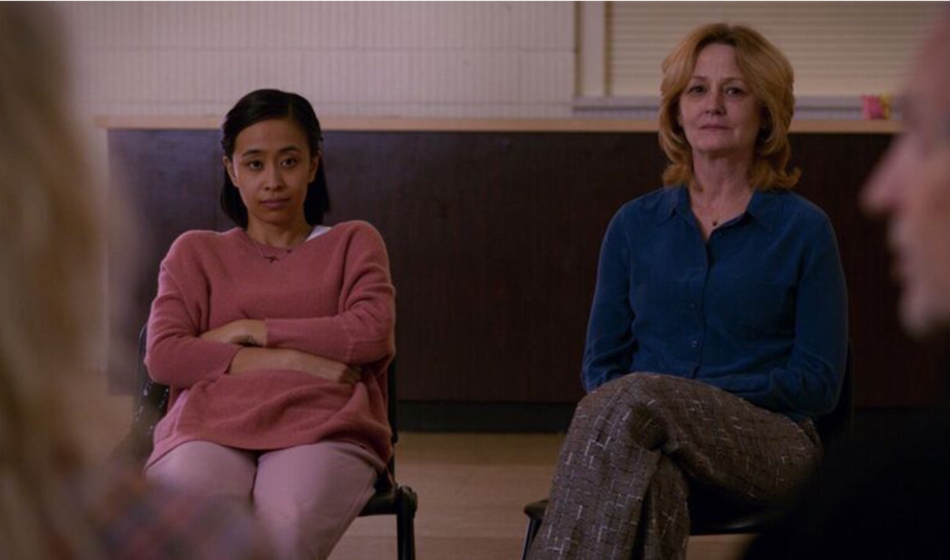
CM: Was the script completed by the time you started reaching out to John Hawkes and Melissa Leo?
SY: Yes. John I had worked with ten years ago on Miranda July’s first feature Me and You and Everyone We Know. I grew up in upstate New York in a riot grrrl band playing guitar, so I had found out on that film set that John was a musician. After shooting I had gone and seen him play a couple of times and saw how incredibly talented he was. So ten years later, once the [Unlovable] script was done and we were talking about who would be a good actor, John Hawkes’ name was the first to come to mind because we really needed someone who could also help write ten original songs. He’s a musician and he’s so incredibly talented and nuanced and versatile as an actor, and he has a lot of Jim innately inside of him; he’s someone who doesn’t have an email address [laughs]. So even in reaching back out to him, I remember writing a letter to his agent and just saying, Hey John, remember me from all these years ago? We bonded over music. I have this film that has a lot of music in it. And I think John read the letter, watched Charlene’s previous short films, remembered me from that time, and sat down and spoke with us and then came on board.
We were so, so lucky because the music that he created and some of his own original music from two to three decades ago are in the finished film. Like when Jim is listening to these old tapes that he has, they were literally old tapes that John had. When we were in prep he would play me different songs that were options of things we could use, and I think it really adds to the texture. Even recently my agent was like, “Did Suzi direct those music videos in the film?” And I was like, “Yes, I did!” [Laughs] But they ring as so true that you can believe that it was just a John Hawkes video from 20 years ago. It was a testament to the work that we put in and how grounded in an honest place we were; how this really does in so many ways come from life and the lives that Charlene and John have led.
For Melissa Leo, I think this is the fourth time I’ve worked with her. That was through reaching out to her with the script and also letting her know when John was on board because for years she wanted to work with John Hawkes. So it was just the right amount of pieces – Charlene’s original voice, Melissa and I always loving to work together if possible, and the addition of John – just made it the perfect combination of elements to get her on board.
CM: That is an interesting piece with Melissa. When you’re working on a film on a lower-budget level, people wonder about how to attract an Oscar-winning actress. The opportunity for them to work with [a fellow actor] they’re a fan of and get to share scenes with is something I bet a lot of filmmakers don’t necessarily think could be a factor.
SY: Yeah, for sure. Because they’re actors who love each other’s work and I think Melissa had reached out to John about a couple of different films. John is pretty selective with what he ends up doing, as is Melissa. It was fun, especially [because] they have that big, juicy fight scene together and that was definitely an interesting, exciting day where sparks flew.
CM: Charlene, what was your comfort level like working with such heavy-hitter co-stars?
CD: You know, in the beginning, it was actually pretty surreal and intimidating. I definitely had a little bit of impostor syndrome. I feel like for the first few days I was wondering how I tricked these people into working with me [laughs]. But it was a very fulfilling experience because I learned so much from the both of them. They both gave me such great acting tips. I felt like I learned more from the both of them than any school or class I ever had.
CM: You had a lot of viral fame with Twitter and your social media following and YouTube. What’s it been like trying to leverage that for a feature film? Do you see a lot of overlap there or does it feel like two distinct worlds?
CD: It’s been so cool how social media has been such a big part of my career. Even first connecting with Mark or Patton Oswalt, who’s an associate producer, they all met me through Twitter. Then Kickstarting the film, all my social media followers including people like Seth MacFarlane or Adam McKay or Jason Reitman that donated, they all followed me on Twitter. So I think it really, really helped with this. Even putting out the movie now, releasing it, it’ll be social media word of mouth that’s really going to help it. So it’s cool that everything I’ve put into social media is now helping me with this.
CM: You’re seeing that it’s more than trolling and politics.
CD: Yeah. I mean, that stuff sucks and it’s getting worse [laughs], but I feel like it’s really cool to use it for good.
CM: Ae you considering your next roles in terms of continuing acting in things you write for yourself, or are you auditioning for other peoples’ projects as well?
CD: I’m definitely still auditioning. I’ve been here for ten years and I feel like that’s just a regular thing. But definitely with this and in the past and moving forward, my main focus is creating things, telling my stories. I imagine everything that I make moving forward is going to be based on experiences from my life. Even with this film, it’s such a small sliver of all the stories that I have to tell, so I’m really excited about telling those. I hope to not only continue making movies, but I would love to bring this to television.
CM: Are you still writing shorts as well?
CD: I’m actually working on a book right now and also some films too. But I just want to keep sharing my story and helping others.
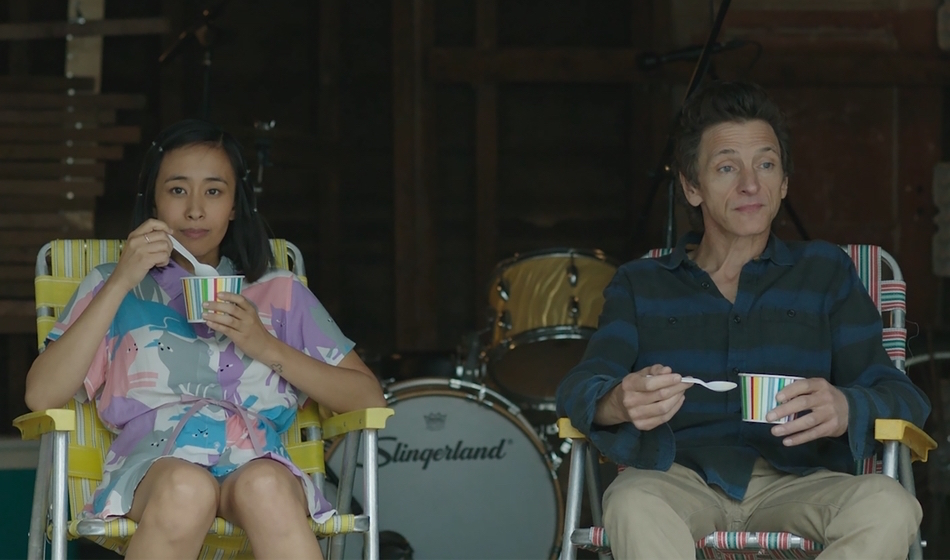
CM: Suzi, you’d had prior working relationships with your three leads. Did you have any time or budget to rehearse with them before you started filming?
SY: We definitely had no budget, but the actors did make time to go through the script and we went through the scenes. We read through the scenes once and I think for Charlene and John a lot of the work was them playing music together. That was really the rehearsal, them playing music together and I would stop by and listen to what they had been playing. But we didn’t run the scenes in terms of rehearsing, not in that way.
CM: Music plays such a big part in the film. Charlene, did you have a big music background?
CD: I started playing the drums in middle school, so I’ve always played the drums. Then I was in the off-Broadway show Stomp and I did the national tour with them. So music has always been a really big part of my life. It was really cool working with John because we started working on the music two months before we started filming. So we really developed a bond and our friendship through the making of the music.
CM: In regards to the music, was the genre or tone or any type of lyric written into the script?
SY: There were a couple that were just song names, but then eventually Sarah Adina Smith had written the lyrics for most of the songs, and then John wrote lyrics for some songs. So it was between Sarah and John how we got the songs. Then there was always something that said, And then he writes a hit song! So for that song, that was not written but I think I had a moment with John and Charlene where I had come by to listen to them rehearsing and playing and I talked about how it felt like it should be something about a trigger since throughout the script they both talk about triggers and it’s a theme. So he wrote, “Here’s to the Trigger.” It was a really exciting and interesting process with the writing of the music. John did such an incredible job writing those songs.
Then we had Christopher French come on board and he wrote the score for the film in eight days. That really was incredible because we had had a different composer and I was posting two movies at the same time and she was on that one. And then we brought another composer on and she sent me half of the score and it was missing the thrust I was hoping to have to convey addiction and capture what addiction feels like. So I had worked with Chris on something and he came on board and in eight days wrote this incredible score that uses a lot of the music and themes that John had written for a couple of the songs. It really made a nice cohesive sound for the whole movie.
CM: I assume being pregnant is probably something that stands out as the most unique aspect of the production. How do you prep for that? Is there any advice to take, or did you know any other filmmakers who had directed a film while pregnant?
SY: I didn’t, and it was exactly like [normal] except for having to squeeze into the porta potties some days – that would be the only downside. Directing pregnant was easy breezy, and if anything it’s almost like your crew is working to the Nth degree since they see you’re pregnant, so I wouldn’t say anyone ever was complaining to me [laughs]. Because after that I did a show where I had a baby and was on location and that is much harder. I’d say being pregnant is a breeze on set – at least for me it was, I know people have different pregnancies – but having a baby and being in the first six months of their life and having to take your lunches to pump, and pump at the end of the day and pump at the beginning of the day, that’s like a whole other conversation. But fortunately for Unlovable, I was seven months pregnant.
CM: How long was the shoot for Unlovable?
SY: It was 16 days, and then we did two days of additional photography. We actually re-did the opening, so the opening of the film was additional photography. So it was a total of 18 days.
CM: That’s a lot to pull off, especially while pregnant.
SY: Actually, I’m amazed that on the budget level we were at – which was under $200,000 – to get 18 days. I did a $4 million film where we had 17 days, so it’s really a testament to the producing of Jen Roskind and Mark Duplass to be able to squeeze so many days, and for Sarah and Charlene and Mark to make a script that really allowed us to stay in one location and get the most bang for our buck.
CM: Charlene, how has the festival circuit been for you in terms of being in the room and seeing an audience’s reactions to something that came from your personal struggles?
CD: So, so amazing. Every festival, I’ve had people come up to me after, sometimes they’re in tears. They’re telling me their stories, they’re telling me that they have the same addiction, they’re sharing their personal stories. That’s exactly what I wanted from this film, just to be able to connect with other people on this level and get rid of the shame around it so we can talk about it and feel it. So it’s been really amazing. To this day I’ll get emails from people who’ve seen it and are getting help because of it, and that’s what really means the world to me.
__
Thanks to Charlene and Suzi for talking to us about UNLOVABLE. Follow the film on Facebook.
This post has been edited and condensed from two interviews.
If you’re an independent filmmaker or know of an independent film-related topic we should write about, email blogadmin@sagindie.org for consideration.

